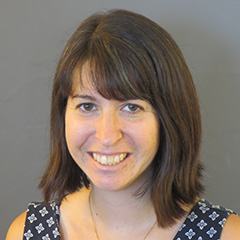Julie Bruch has broad expertise in studying the implementation and outcomes of education programs at the K–12 and postsecondary levels, with a focus on at-risk youth, non-traditional college students, and equity.
Bruch’s work at Mathematica has focused on generating evidence about how education programs, practices, and policies are implemented within broader systems; how they impact students; and how to use data and evidence to improve outcomes for students. She is the project director for the Adult Promise evaluation for Lumina Foundation, studying how states design and implement initiatives to engage and support adult students in completing college. She leads ongoing qualitative data collection, analysis, and reporting on these state-level initiatives across 12 states, and she oversees analysis of participating students’ enrollment and completion outcomes. As part of an ongoing design study for the U.S. Department of Education, Bruch leads work to understand the landscape of adult education providers and approaches, and to assess the feasibility of conducting rigorous impact studies in the field of adult education. At the K–12 education level, she is the principal investigator of a study for the Regional Educational Laboratory Mid-Atlantic on how to use data from schools and human services agencies in an early warning system to identify at-risk students. She also provides measurement and evaluation technical assistance to grantees funded by the Bill and Melinda Gates Foundation that are testing innovative approaches to dramatically improve math outcomes for middle school students who are Black, Latino, or experiencing poverty.
Bruch, who joined Mathematica in 2010, holds a master’s degree in public administration with a focus in public policy and management from the London School of Economics and Political Science.


